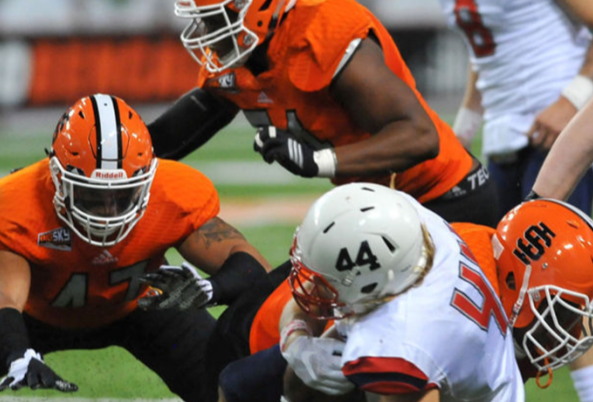Strength Crushers
Winning Habits | Strength Crushers | Smart Cooking | SCORE Team | Healthy Connections | Fueling Greatness

As much as good nutrition can help optimize your athletic performance, poor nutrition can really crush your strength and athletic prowess. Take a minute to learn more about:
Alcohol and Athletic Performance
Alcohol and athletic performance: Five things to know:
- Alcoholic drinks are low in nutrients and high in calories. And, rather than energy, your body converts the calories from alcohol into fat. Beer and other alcoholic drinks are, thus, not good for providing energy and replacing fluids lost during exercise.
- Alcohol affects athletic performance—it can negatively affect balance, reaction time, motor skills, psychomotor functioning, and judgment.
- Athletes who drink regularly have an increased risk of injury. Plus, alcohol interferes with recovery time. Sports-related injuries tend to heal more slowly.
- Consuming alcohol on the night before a competition can impact your performance. In addition to disrupting your sleep, hangovers can cause headaches, queasiness, and dehydration.
- Alcohol does NOT enhance athletic performance. The effects of alcoholic beverages linger in the body and can remain for up to a full day after you drink.
Heavy Caffeine Consumption
Most Americans start the morning with a jolt of caffeine. For some, it is a morning coffee and for others a caffeinated sports drink or diet cola. Whatever your preference, too much caffeine can impact your sports performance.
Caffeine is found in coffee, chocolate, and tea. It is also added to many soft drinks and medicines. A central nervous system stimulant, caffeine affects everyone differently. Factors such as individual size, weight, and overall health can impact how much caffeine your body can tolerate. But, for most of us, even small amounts of caffeine promote that “gotta-go” feeling in our bladders.
High levels of caffeine can increase urine production by as much as 30 percent and lead athletes to lose much-needed electrolytes like sodium, potassium, and chloride. Consuming excess caffeine can also decrease your appetite, potentially preventing intake of the calorie level required for optimal performance. Plus, caffeine is a banned stimulant and high levels can show up on NCAA randomized drug tests. Athletes who test positive for stimulants can lose their eligibility.
Is your caffeine intake excessive? If so, try some of these alternatives:
- Decaffeinated sodas
- IZZE sparkling juice
- LaCroix sparkling waters
- Propel flavored waters
- Homemade flavored waters with fruits and vegetables
Mindless Eating
Do you ever find yourself eating without even thinking about it? Snacking aimlessly while studying or playing computer games? This type of behavior is referred to as mindless eating. Mindless eaters typically go for calorie-rich, nutrient-poor foods. Easy to grab, packaged convenience foods and fast foods are common choices.
Research has found that lots of factors can prompt mindless eating:
- Eating food served in large bowls or plates.
- Skipping breakfast or not planning ahead for lunch.
- Lack of adequate shopping and cooking skills.
- Hanging out with others who are mindless eaters.
SCORE arms athletes with nutrition knowledge, as well as the shopping and cooking skills needed to move beyond mindless eating to making healthy choices to optimize performance.




